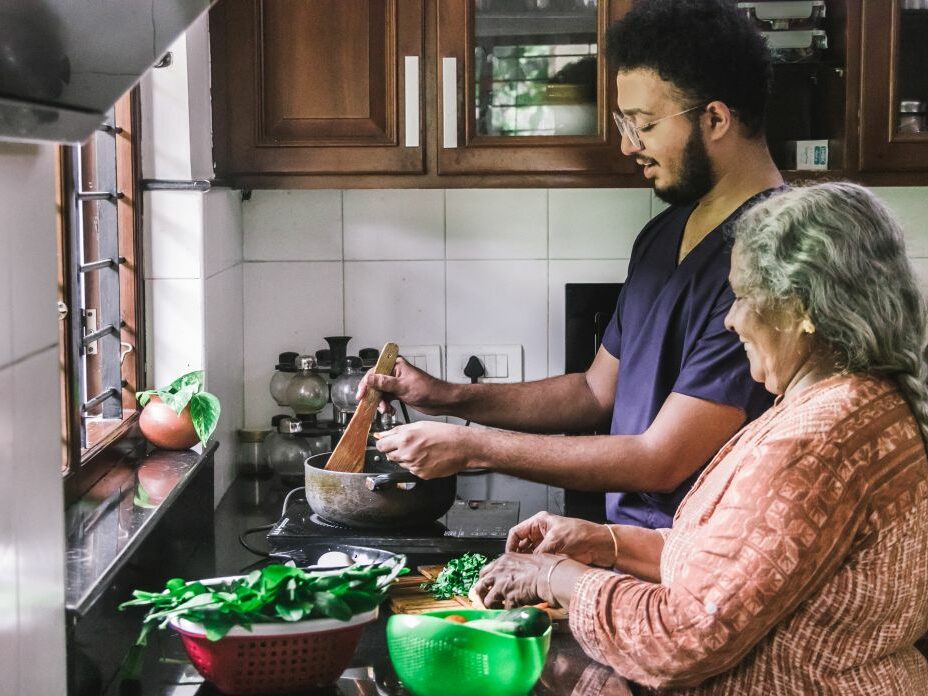Palliative Care
Palliative care is for people who have conditions and illnesses that have been diagnosed as terminal, meaning they cannot recover from them. Once an illness progresses to the stage when a loved one is close to dying, the focus of their care changes to palliative care and helping them to live as well, and as comfortably, as possible for the time they have left. Depending on their illness, this can take place in your own home with the help of medical professionals or in a hospice, hospital or care facility.
What is a hospice?
There are hospices all around New Zealand that provide palliative care to people in their local community. They take a lead role in someone’s care when there’s no longer a cure for the person’s illness. Palliative care is available for people with cancer and other diseases such as end-stage heart, respiratory and kidney disease, Alzheimer’s, AIDS, motor neurone disease (MND) and multiple sclerosis (MS).
In addition to the health professionals on staff, some hospitals also have a team of palliative care specialists who provide medical and nursing care to patients as well as advice and support to hospital staff, palliative patients and their families. Hospices offer specialist care specifically to people with a life limiting condition and their families/whānau. Most care is provided at home, with hospice staff visiting people on a regular basis and providing a wide range of support services.
Hospice principles of palliative care
Hospice New Zealand follows principles of palliative care, which help to determine how people are cared for. They do their best to ensure that people:
- Live with minimal pain and that any pain is well managed (many people find strength in their suffering and don’t want to take drugs that might stop them communicating)
- Keep their dignity
- Have their decisions and choices respected
- Are treated with openness and honesty
- Are cared for with love and respect and without feeling they are a burden
- Die as they would wish (either alone or surrounded by loved ones)
- Die where they wish (either at home or somewhere else)
Who pays for hospice care?
Hospices don’t charge for their services. Hospices are charitable organisations that get some funding from the Government through District Health Board contracts. The rest of the money they need comes from the community they serve through fundraising activities, grants, donations and bequests. Public hospitals provide palliative care without charge to patients. Private hospitals and residential care homes usually charge for the care they provide. G.P.s may charge for visits to patients with palliative care needs. Find out how you can donate to a hospice in New Zealand.
What is home-based care?
Home-based care is a part of the comprehensive programme of care hospices provide. It includes specialist nursing care and other support services such as day or respite care, for the carers of people who are dying. This means someone will take over for a while so you can go shopping or have a break. Alternatively your loved one could be admitted to the hospice inpatient facility to provide carers with a short break, as being a carer can be incredibly exhausting. The home-based team also coordinates referrals to another care setting when needed, for example, residential care.
People with acute needs can be cared for in the hospice inpatient facility instead of a hospital and once their condition is stable they go home again. Sometimes people go into a hospice because their carer needs a longer break than one day or they can’t look after them for short periods. Inpatient facility stays are usually short term and it is common for people to move in and out of the inpatient facilities several times, during their time. People may also choose to die in a hospice.
Advanced care plans
Advanced care planning is a process of thinking and talking about your values and goals and what your preferences are for current and future health care. It helps you to understand what the future might hold, and say what health care you would or would not want, including end-of-life care. More information about advanced care planning.





